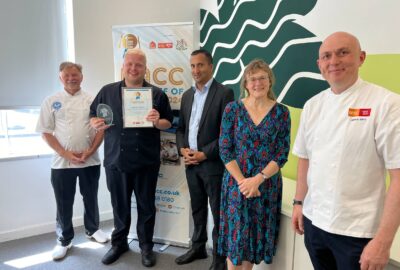The Children’s Future Food Inquiry ambassador Dame Emma Thompson joined young ‘Food Ambassadors’ at Westminster yesterday to deliver a new report which calls for an independent Children’s Food Watchdog to lead the charge on tackling children’s food insecurity in the UK.
The Children’s Future Food Inquiry is the first attempt to directly and systematically seek the views of children and young people living in poverty across the UK. It has spent 12 months investigating children’s food insecurity in each of the four UK nations, and the project’s final report pulls together direct input from hundreds of young people, the frontline staff, academics and experts.
Dame Emma Thompson, Children’s Future Food Inquiry ambassador, said: “In a wealthy society that claims to value compassion and humanity, how can we tolerate the injustice of millions of children going hungry?
“In face of the government’s refusal to help, the Children’s Future Food Inquiry has brought together hundreds of young people to hear about their lived experience of food poverty, and it’s time we listened to what they say. It’s the younger generation who will deliver the change that’s so urgently needed: we must act now to ensure every child in the UK has their right to food.”
The #Right2Food Charter included in the report presents the Inquiry’s young ‘Food Ambassadors’ (aged between 10 and 18 years) own recommendations for loosening the grip of food poverty on children in the UK and improving their access to enough nutritious food. Their key proposal is for a new Children’s Food Watchdog, which will stand as an independent body with children and young people involved in its leadership.
With the first stage of the inquiry concluded, the committee (made up of parliamentarians and civil society experts; including the Children and Young People’s Commissioner in Scotland and the President of the Royal College of Paediatrics and Child Health) will focus on establishing the Children’s Food Watchdog, and its first action will be to conduct an economic costing of the full range of measures proposed in the report by the young people as solutions for the problems identified by the inquiry. These measures aim to tackle the differences in policy and provision across the UK with the aim to achieve minimum equitable standards, including extending the entitlement of free school meals to the 23% of children not entitled to them who are missing lunch due to lack of money; ensuring the funding provided for free school meals is actually sufficient to buy a healthy lunch; and ensuring that more families benefit from the fruit and vegetable vouchers provided through Healthy Start (from which currently only 30% of children in poverty benefit).
Calls for robust policy responses to children’s food insecurity come on the same day as reports that a record 1.6 million food bank parcels were given to people in the past year, with more than half a million of these going to children.
The Inquiry’s evidence was gathered from workshops with nearly 400 children in 13 different locations around the UK, an academic review of child food insecurity, polling of young people 11-18 years, more than 100 submissions of evidence from people working with children, a UK-wide policy review and secondary analysis of government data on the affordability of a healthy diet.
Anna Taylor OBE, executive director of the Food Foundation, said: “Children living in poverty have told this Inquiry directly that they don’t have enough to eat, and that the food their parents can afford is harming their health. We should care about unlocking our children’s potential, but instead the food insecurity experienced by millions of young people in the UK is hindering their growth, crippling their confidence and making it impossible to learn and develop. The Inquiry’s report and its recommendations prove that there are things we can do, right now, to make sure children have enough nutritious food. It’s an opportunity to right the wrongs we have tolerated for too long – we cannot let it pass us by.”
Sharon Hodgson MP, Member of Parliament for Washington and Sunderland West, Shadow Minister for Public Health and co-chair of the Children’s Future Food Inquiry, added: “As Co-chair of the Children’s Future Food Inquiry, I have heard directly from young people about their experiences of food poverty.
“I believe that no child should be going hungry or experiencing food poverty. That is why I was proud to Co-Chair this inquiry and speak to young people who are experiencing food poverty in order to understand their hardships and how Government can better support them and their families.
“Children are falling through the safety net, and families are having to rely upon charities and service providers for things such as breakfast clubs, holiday provision and foodbanks. These children, and their families, need support from the Government in order to have access to healthy and affordable food.
“The Government must take this issue of food poverty seriously, and it must include young people in the conversation.”


